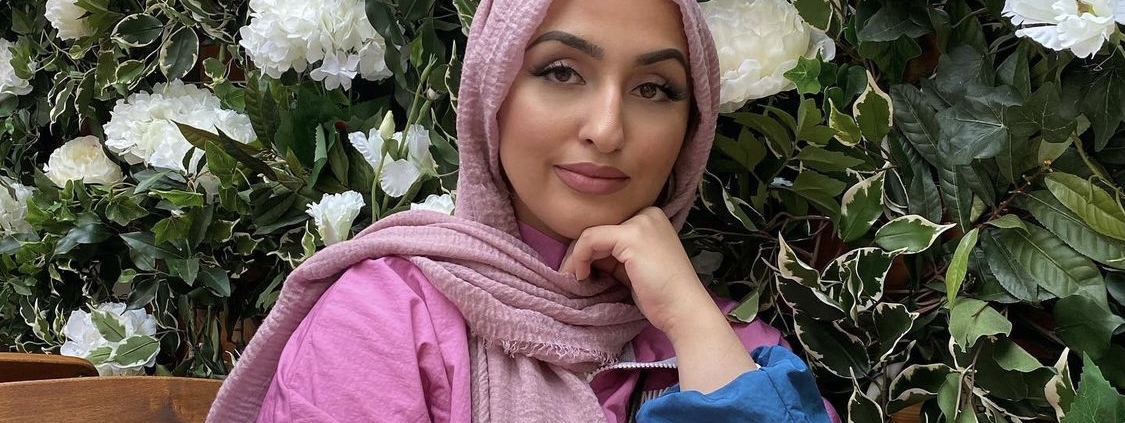My Ramadan To Yours
I always admired the way my parents would set their alarms to wake up for Sahour. The idea of waking up in the middle of the night to eat as a family was very intriguing and unusual for a seven-year-old as you could probably imagine. I used to desperately beg my mum every single night so that she won’t forget about me. Just to hear the “Ker-Chunk!” of our toaster and indulge into the buttered toasts with some chocolate spread on top.
It was a period where Ramadan fell on the winter months of the calendar, probably around late December times when I first started fasting. The days were short so it was manageable. We would usually break our fasts around 4pm and the last 15 minutes or so would be the most dreadful but the most exciting minutes of our lives.
I always watched what was placed on the dining table during sahour and iftar hours. For me, the star was and is still to this date, the slightly chewy and succulent medjool dates. Knowing that our Prophet Mohammed (PBUH) was a huge fan of dates and used to break his fast with these special fruits is what makes the experience of breaking my fast the same way, a rather sentimental and meaningful one.
I suppose as a child, what appealed to me the most, were the unscheduled dining hours we would have during Ramadan. It seemed to be very adventurous to wake up to something which wasn’t the norm and did not take place in other people’s homes. An experience which I could talk to my friends about. But today as a twenty-seven-year-old my intentions and experiences have changed. Then as a child, I was looking forward to exploring something new, today as an adult, I am looking forward to embracing and bettering something I already have.
As years went by, my relationship with food changed. I became more tolerant and developed a sense of gratitude for everything I had and humbled myself for all the unnecessary things I wanted. Ramadan gradually became a turning point in my life and a time for self-reflection. It helped me change my eating habits to an extent where in 2019 I started my healthy eating journey.
To me the meaning of fasting changes every single year without losing its original value. I try to add something to my current understandings and practices, so that I could improve myself during that time and set myself targets for the upcoming calendar.
Although today our experiences may vary, what has stayed the same for me is, the fact that Ramadan has always helped me cleanse the impurities of my body and mind and has increased the empathy I’ve had for the less fortunate. Not only is fasting a religious practice for me but it is also a commitment which has strengthened my family bonds too.
I was very fortunate to be given the opportunity to interview Niloufar Thawer who is a Retail Manager at Paddington Central to discuss and explore her experiences during Ramadan this year.
What are your thoughts on the holy month of Ramadan and do you feel like it changes you?
“I think Ramadan changes you as a person both mentally and physically. Firstly, because you are cleansing your body; secondly, because you are getting closer to God. For me the main one is getting closer to God not only because of the month of Ramadan but because I started noticing other things about the holy month too; like how people may feel if they’re not eating.”
Do you see a change in the way Ramadan rituals are now practiced due to the pandemic?
“For sure. I’m an Ismaili Muslim and I normally go to the South Kensington Mosque. We would normally participate in the duties like saying the dua’as. It’s been a massive change because the mosque was closed and we were unable to go. Therefore, there is a big difference of practicing at home rather than going over there and spending it. Additionally, when it comes to the iftar side you can no longer spend it with family and that doesn’t help as you can’t do the things you were once able to do. I think in some aspects we still went along with it and still got on.”
Does your judgement of refraining from bad habits change with Ramadan?
“Definitely. There’s been a lot of mental health involved such as relaxing your mind and not speaking out when it’s unnecessary. There’s also been a lot of patience that comes with this too which is the major factor for everybody, either seeing somebody eat or seeing somebody do something bad in front of you. You start to refrain from letting it affect you.”
What were your goals for Ramadan this year and have you achieved them?
“I’ve had quite a few goals this year such as doing Ramadan for my father as he had a stroke. Unfortunately, I couldn’t manage this due to my own health conditions. I was only able to fast for a few days. I managed to do my prayers and felt happy to do what I can during that time. In regards to my dad, at least I am still there and looking after his care. My priority is to make sure that I continue with that. But in regards to my goals not being able to fast for him was something I couldn’t achieve. Maybe next year if I’m better I could participate again.”
What kept you motivated during Ramadan?
“Personally, there are quite a few factors such as doing self-care. I think that was quite vital. With everything that I am going through, whether it be looking after my dad or the fact that I’m leaving my job, I’ve had a lot of pressure and was extremely occupied. Despite all of this, I feel like a peaceful and calm person even though I wasn’t fasting the whole month.”
What did you find challenging?
“In the first week, it was very challenging as I needed water very badly. With the headache’s I was getting from the meetings, people could just see that I was drained and I just did not want to talk to anybody.”
How did you prepare for suhoor this year?
“Normally what I do is I opt for something that would stay in my stomach for a long time such as a cereal with bananas, blueberries and raspberries. I try to add more fruit so it gives me the energy I need. And then I’ll make a smoothie and eat some nuts as well to keep me active. The only problem was sleeping straight after as the food makes you energetic.”
What was your favourite part of breaking your fast?
“Looking forward to the food and the smells! Being an Asian woman, there were so many times when I was cooking and was almost putting the spoon in my mouth until I realised oh no I can’t do this. Also, listening to the Adhan during Magrhib made me feel very accomplished.”
How did you manage daily work schedule whilst fasting as a retail manager?
“As I was based at home for that one week I was committed to my fasts, I didn’t have any issues with work. It was only during the day if I had any headaches, I was laying down more frequently. I wasn’t allowing stress at work to get to me and maintained a good balance of continuing with my daily duties.”
What Ramadan traditions do you have as a family?
“What we as Ismaili’s do is, we drink the holy water (Zam-Zam) which we call it Niyaz in our culture when breaking our fast. Next we would have a date straight after and then we would eat our main food. The whole process symbolises how you are breaking that fast. After, we stuff our faces with a big plateful of food.”
How are you planning to celebrate Eid this year?
“I will be preparing kebabs, samosas and biryani. Normally I would be going to the mosque for the Eid Namaz but I guess this year we can’t do that. I am going to be working during the day and later on in the evening, my uncles would be coming over to spend Eid with us. I will be getting my Eidi so I am very happy about that.”
What is one advice you give to yourself and others about Ramadan?
One thing I would definitely say is, just because Ramadan is happening it doesn’t mean that you should change the way you are only for a month. You should be the same all throughout.”
Written by Ayse Kizilkaya





